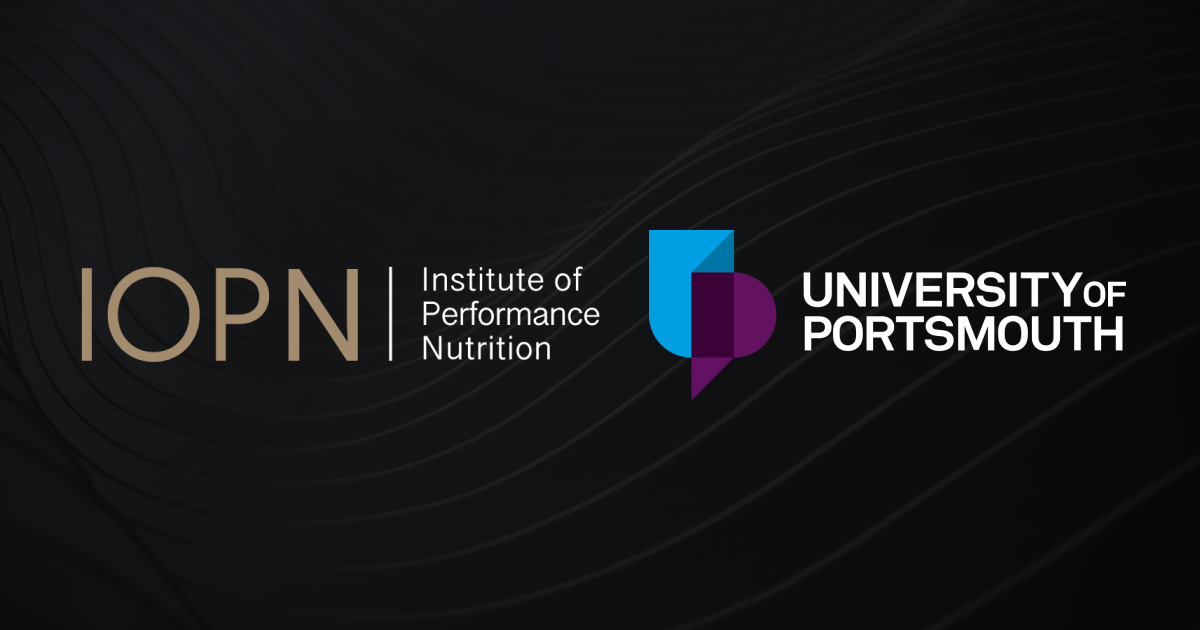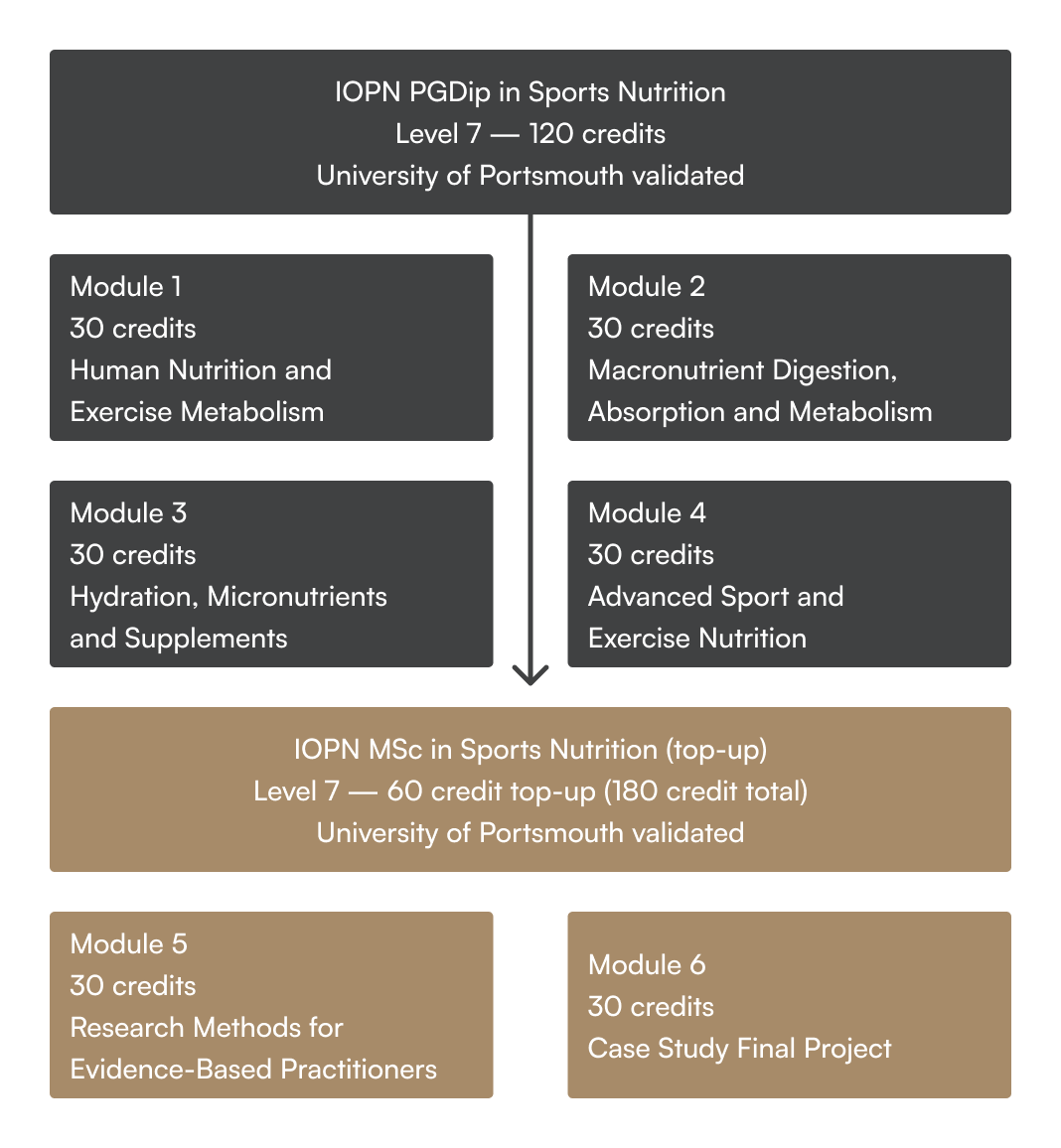Transform your career
Graduate with the confidence to create lasting impact, or continue your learning journey towards an MSc in Sports Nutrition.


Designed with flexibility and applied practice at its core, the IOPN Postgraduate Diploma (PGDip) is the new gold standard for the next generation of Sport and Exercise Nutritionists. Validated by the University of Portsmouth, you will earn a globally respected PGDip from the industry leading Institute of Performance Nutrition.
Built on the IOPN’s unique three-step learning framework (relevant theory, expert translation, and competent application), the PGDip combines the latest science in sports nutrition with real-world practice. You’ll move beyond the theory, developing the confidence and competence to deliver effective nutrition strategies across a range of contexts. Plus, you’ll have the flexibility to study 100% online and part-time, enabling you to balance personal and professional commitments.
You’ll immerse yourself in a rich, applied learning environment, supported by a team of PhD-level practitioners and researchers and guided by the IOPN’s Founder Dr Laurent Bannock. Plus, you’ll be part of an impressive network, drawing on the expertise of over 40 guest experts, more than any undergraduate and postgraduate programme globally, to ensure your success during and after the programme.
The PGDip in Sports Nutrition offers a rich, applied learning experience designed to prepare you for real-world practice. You’ll complete four modules that build your ability to critically evaluate research, apply evidence-informed strategies, and support athlete performance across a range of contexts. You will achieve a PGDip exit award following the completion of Module 4, with the option to continue your learning journey through the IOPN MSc in Sports Nutrition (top-up).
Registration Fee
£1,000
Tuition Fee
£4,980 + applicable VAT
Financing
Tuition Fee can be paid in full or through a bespoke repayment plan
Learn from 40+ guest experts across professional sport, research, and performance nutrition.

Prof. James Morton PhD SENr
Liverpool John Moores University. Formerly Team Sky & Liverpool FC.

Dr Sophie Killer PhDr
Performance Nutritionist, English Institute of Sport

Dr Mayur Ranchordas DProf SENr
Sheffield Hallam University & sports nutrition consultant for elite athletes.

Prof. Graeme Close PhD SENr
Liverpool John Moores University. England Rugby & European Tour golf.

Dr Javier Gonzales PhD
University of Bath

Professor Kirsty Elliott-Sale
Manchester Metropolitan University

Prof. Emma Stevenson PhD
Newcastle University

Prof. Dylan Thompson PhD
University of Bath

Dr Kevin Currell PhD RNutr SENr
English Institute of Sport

Dr Lewis James PhD
Loughborough University
Graduate prepared for real-world practice
You will graduate from the IOPN PGDip in Sports Nutrition having gained industry leading training and education that prepares you for working confidently and competently with clients and athletes of a range of backgrounds. Many IOPN graduates have gone on to work with elite athletes, professional sports teams, and national sporting bodies, or have launched successful private practices.
Your pathway to an MSc in Sports Nutrition
Our MSc top-up pathway offers those wishing to continue their academic journey with the IOPN the opportunity to build on the four core modules of the PGDip by completing two additional modules and earning a globally recognised MSc in Sports Nutrition.


As industry leaders in the field of sports nutrition, we’re proud of the accreditation and global recognition our programmes have achieved — a reflection of our ongoing commitment to achieving excellence in academia, research and applied practice. The University of Portsmouth is our new validating partner for the IOPN PGDip in Sports Nutrition.